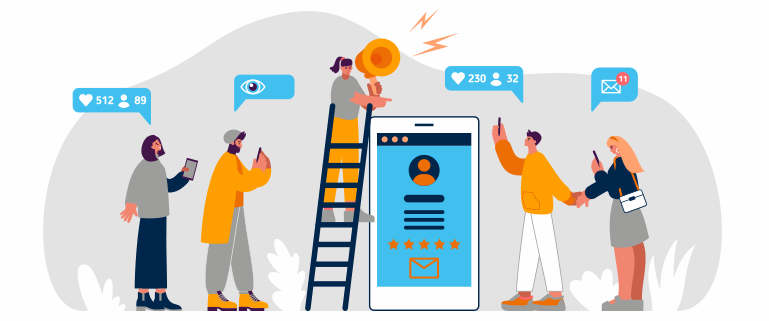Users increasingly expect an individually tailored shopping experience: A full 63% expect personalization when shopping online. It is no surprise, then, that personalization is the talk of the town and that shops are increasingly discovering its benefits. For many, however, the equation is: product recommendations = personalization. But this is only half the truth. In today’s blog post, we will demonstrate what the differences between personalization and product recommendations really are.
Product recommendations – personalization light
Placing product recommendations and personalization in the same pot is not wrong, but it’s not quite right either. Product recommendations can be tailored to the user and his interests, but they can also be displayed without any reference to his needs. And yet, recommendations (even without personalization) can enhance the shopping experience.
Recommendations on the homepage of an online shop can arouse the interest of users similarly to the store window of brick-and-mortar retail. The latest collection, the top sellers or the current sale work even without personalization. These product recommendations are particularly suitable for attracting new customers and providing them with initial inspiration. Even on product detail pages, the shop’s top sellers can be an alternative or add-on to the viewed product for unknown users.
Personalization, however, takes this a step further. Here, not only products that appeal to a broad mass are displayed, but also exactly those articles that correspond to the interest of the respective user. This means that recommendations from the favorite category or favorite brand are displayed. Personalized recommendations are usually based on a smart recommendation engine so that users’ needs can be optimally met. The algorithm collects information about the user from the beginning of the customer journey and can thus always calculate suitable recommendations. In addition, the smart engine can be fed with further data from external systems to refine the recommendations even more.
Our customer LaShoe also relies on trbo’s intelligent recommendation engine. Instead of manually filled recommendations of shoe accessories, products matching the interests of the users are now displayed on the detail pages. The result: a 29.8% increase in conversion rates!
Would you like to learn more ? Download our case study now!
All-rounder personalization
Product recommendations can be personalized, but they don’t have to be. And this proves one thing: personalization is much more than just recommendations!
For marketers, the possibilities offered by personalization are almost limitless. In principle, all page content can be tailored precisely to users using personalization. This starts on the homepage. Here, entire teaser areas can be exchanged and even menu items can be rearranged. For users interested in men’s fashion, the “Ladies” menu item then disappears and the teaser for women’s fashion is replaced by the new men’s collection or the current sale. Preferred brands can also be moved to the foreground and prominently displayed to the user. If the user has already placed something in the shopping cart some time ago, the forgotten products can welcome the user on the homepage during his next visit.
However, data from previous visits is not always required. The user’s location can also be used for personalization. Weather and location then influence the individual approach to the user. When it is raining or snowing at the user’s location, weatherproof clothing can be displayed, for example. In addition, the shop can highlight click & collect options at a nearby store.
Similar and yet not the same
The difference between product recommendations and personalization may not seem very great at first glance, take a closer look and that first impression will change. Personalization aims to individualize each customer’s entire shopping experience. From the point of entry, all the way to customer retention after the purchase. Product recommendations are an important part of this. However, shops lose a lot of potential if they only rely on recommendations. Therefore, the key to success for any online store is a combination of personalization and recommendations.
